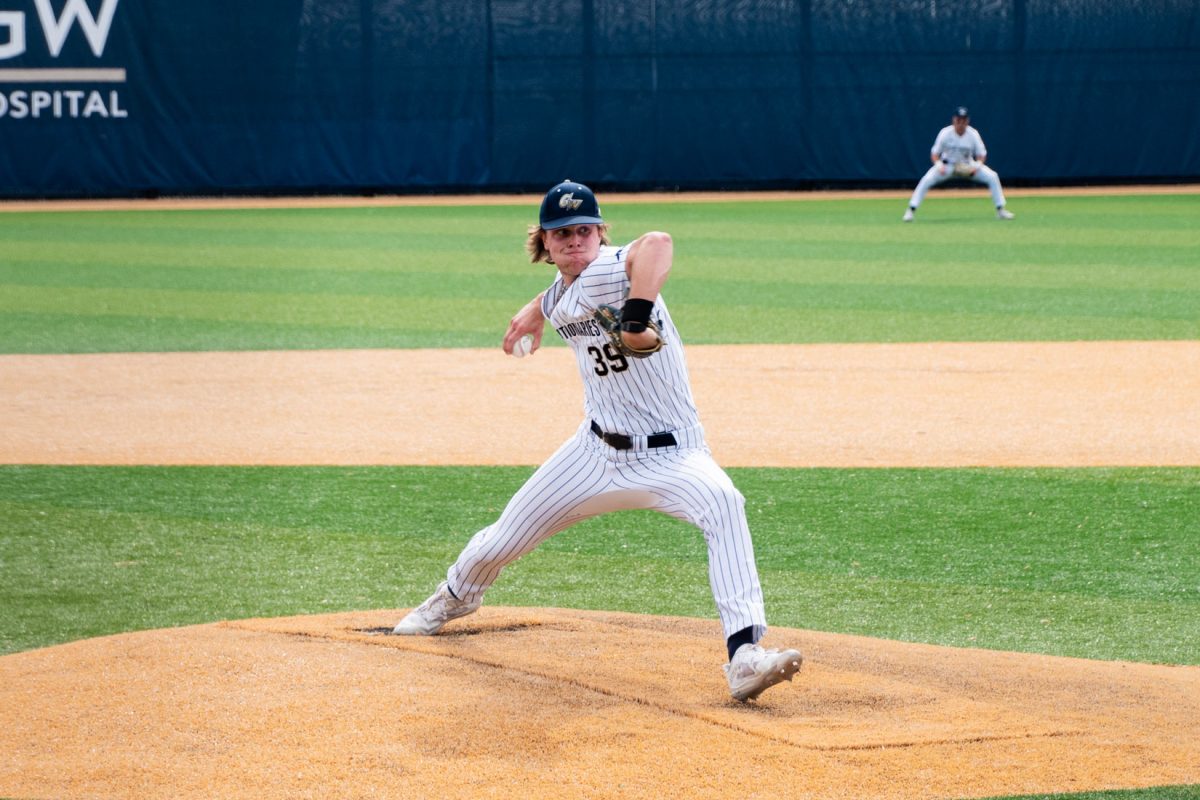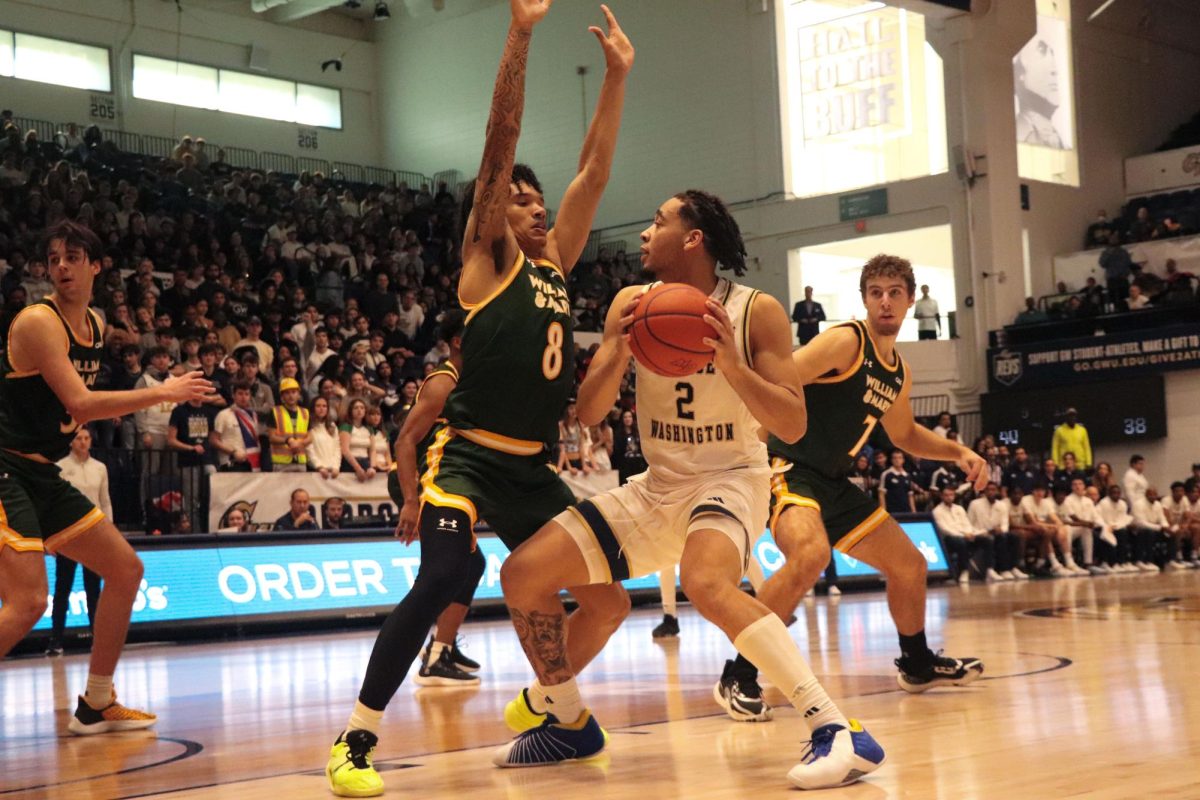On Sept. 30, 1971, the Washington Senators and New York Yankees played the last professional baseball game in the District of Columbia. Ahead of the Yankees 7-5 with two outs in the bottom of the ninth, the stage seemed to be set for a sweet swan song for the local nine.
But the “Nats” fans in attendance at RFK stadium would not see baseball go quietly into the night. Third-inning cheers of “Short stinks” escalated into an all out melee that saw Washingtonians swarm onto the diamond, throwing dirt, tearing seats and grabbing everything from players’ hats to the “E” from the stadium’s scoreboard. In the stands, fans hung Senators owner Bob Short, of the “Short stinks” cheer in effigy. Players ran to the clubhouse for safety. Head Umpire Jim Honochick had no choice but to call a forfeit and award the win to the Yankees. And you thought Bud Selig’s all-star game was a fiasco.
Long time Senators fan and author of the book Washington’s Expansion Senators (1961-1971) James R. Hartley was not in attendance that day. He didn’t want to give Short the satisfaction.
“I didn’t go,” the author told the Hatchet Wednesday. “I had given him enough money over the years.”
And Short wasn’t there either. He was in his home in Minnesota, with a radio set up to hear the game, listening to Ron Menchine broadcasting the last professional baseball game in D.C.
“I was making comments such as ‘this is a disgrace,'” Menchine said. “And Short kept calling me saying ‘make him stop.’ I basically told him to go to hell. What was he going to do, fire me?”
The next day, Menchine remembered opening the Washington Star sports section to sports writer Merrell Whittlesey’s famous lead.
“For the purist, who never feels a game is over until the final out, baseball never left Washington.”
But technically, it did. On April 21, 1971 the Senators played their first game as the Texas Rangers and left the nation’s capital without baseball for the first time in more than 100 years.
While GW students might equate J-Street with good food faster than they would equate D.C. with baseball, the game’s tradition in the nation’s capital dates back more than a century. Back in summer 1859, government clerks, who had heard of the sport’s success in other cities, formed a team called the Potomacs. A second team, the National Club, took form in November.
The Potomacs were the definitive Goliath of the cross-town rivalry but the Nationals, as the second club was called, became D.C.’s favorite team, retaining their roster when the Civil War broke while the Potomacs suited up for war. Sixteenth president Abraham Lincoln, who was playing baseball when he received word that he was to become president, was known to frequent Nationals games.
The District’s first team in an organized professional league came in 1871 when the Olympics joined the National Association, renamed the National League in 1876. Several leagues followed the National Association, until the Nationals, as all D.C. teams came to be known after 1873, joined the newly-formed American League in 1901.
And so the Senators, a name given to the local nine by Washington fans and journalists, became D.C.’s first team in the modern major leagues. While the local nine may have had the tradition, they did not have the goods. The Senators finished sixth in the first two seasons of Major League play and hovered around the basement of their league over the next decade, spawning the slogan, “first in war and first in peace, last in the American League.”
All that changed in 1924, when the Senators claimed D.C.’s first and only World Series victory. With the addition of 27-year-old player/manager Stanley “Bucky” Harris in 1923, capital baseball reached the highpoint of its 100-year tradition.
The Nats took the American League pennant away from Babe Ruth’s Yankees, moving on to the defeat the New York Giants in a seven-game thriller. Pitcher Walter “Big Train” Johnson was the sentimental hero of the series, winning his first World Series in 18 years in the Majors. With losing outings in games one and three, Johnson was brought from the bullpen in game seven and was allowed to bat for himself, reaching second on an error. When Earl McNeely’s grounder stretched past the Giant defenders hands, Johnson trotted across the plate for the win.
Walter’s grandson, Hank Thomas, a 1969 GW graduate, called the moment the “crowning moment of Washington baseball history,” in a conversation with the Hatchet.
While the team reached the Series again in 1925, the Nat’s future “crowning moments” were few and bar between. The Senators of the late 1920s and 1930s consistently finished in the second division in their league and hovered around the cellar throughout the 1940s and 1950s. Thomas said while the team may have been “terrible” sitting in Griffith Stadium’s “beer garden” was always fun and the fans were always die hards.
“Big deal if you’re a fan of the Yanks, that’s easy. But you’re a fan of a team that loses all the time, you’re a real fan … the left field bleachers were fun, a bunch of guys getting plastered, they were more entertaining than the games most of the time,” Thomas said.
But in 1960 the games began to rival the brew. The team finished fifth, beating three other teams in the American League, but owner Calvin Griffith moved the team to Minnesota in Major League Baseball’s first expansion.
Though fans grimaced while the Twins finished second in the American League in 1992 and won the pennant three years later, they had a new team to root for in the capital, when American League owners announced a new club, the Washington Expansion Senators. And on April 10, 1961, President John F. Kennedy threw out the first pitch of expansion baseball.
The new Senators brought All-American slugger Frank Howard to the
District’s fans. “Every kids idol,” as Senator fan “Big Bruno” called him, Howard led the Nats in batting for six consecutive years, topping the American League in homeruns twice and RBIs once.
In 1969, the local fans saw another hero came to Washington when former Red Sox slugger Ted Williams arrived as a manager. But he would not stay for long. Owner Robert Short relocated the team two years later.
James Hartley and other locals say it was never a surprise that Short, who had also owned the Minneapolis Lakers and moved them to Los Angeles, relocated the Senators, despite claims Short made that he did not buy the team to move it.
“Players said they felt he was planning to move the team after the first year, but after the first year they were doing so well he couldn’t justify it,” Hartley said.
But he did justify it 10 years later. Major League owners voted 10-2 (Chicago and Baltimore were the only dissenters) for the Senator’s relocation Sept. 21, 1971.
“Everybody’s hearts got ripped out and stomped on by Rob Short,” said Bob Doyle, a D.C. native who grew up in Silver Spring, Md.
One notorious baseball fan and ex-bartender at Hawk and Dove back when Senators frequented the bar instead of GW students, known as “Baseball Bill,” did more than express his hatred in words, Doyle said.
Doyle was at Memorial Stadium in Baltimore when the Rangers, formerly the Senators, returned to the area to play the Orioles. As the Rangers’ owner, Short was in attendance. From his seat in the upper deck, he saw Baseball Bill walk down to Short’s seat and dump a beer over his head. Senators fans in attendance cheered Bill as he was escorted out of the stadium, but they have had little to cheer since.
While fans were initially optimistic about the prospect of a new team given the speed with which a new team came in 1961, their hope quickly faded after years passed.
“After four or five years, you start to wonder what’s going on and over the next 30 years, after all the different expansion phases, I’m not so optimistic anymore,” Doyle said. “But you always keep hope alive, and I’m a little more optimistic now than I would have been a couple years ago.”
Jan. 16: From Potomacs to Senators
Jan. 23: D.C. gets another chance
Jan. 30: If they build it, people will come
Feb. 6: Time to step up to the plate







